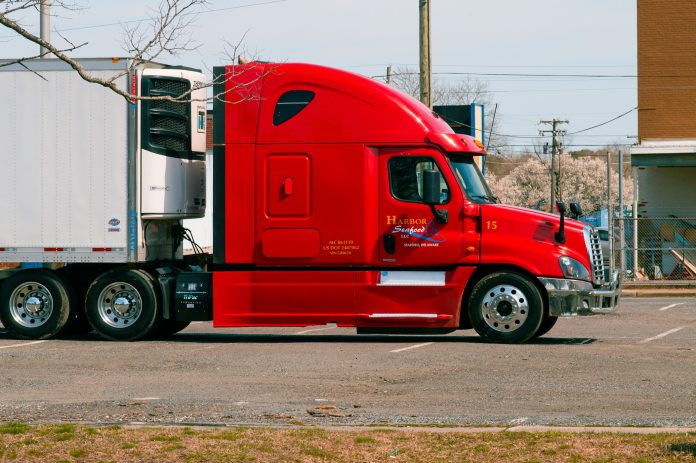In today’s global economy, the safe transportation of heavy goods is crucial. With the increasing demand for efficient logistics and the growing concern for environmental impact, industries are turning to innovation to meet these challenges head-on.
From advanced vehicle technologies to premium packaging solutions, the landscape of heavy goods transportation is rapidly evolving. Let’s explore some of the innovative solutions that are shaping the future of this vital industry.
Electric and Hybrid Vehicles
Electric and hybrid vehicles are revolutionizing heavy goods transportation with their environmentally friendly features. Electric trucks, powered by rechargeable batteries, produce zero tailpipe emissions, reducing pollution levels in urban areas and along highways.
As per the EPA, these vehicles are not only eco-friendly but also cost-effective, as they require less maintenance and have lower operating costs.
Hybrid trucks, which combine combustion engines with electric propulsion systems, offer a flexible solution for long-haul journeys, providing extended range without compromising on efficiency. With ongoing advancements in battery technology and infrastructure development, electric and hybrid vehicles are poised to become the cornerstone of sustainable heavy goods transportation.
Autonomous Trucks
Autonomous trucks are transforming the landscape of freight logistics by leveraging cutting-edge technology. Equipped with advanced sensor systems, including lidar, radar, and cameras, autonomous trucks can navigate roads and highways with precision. This reduces the risk of accidents caused by human error.
Technology Magazine notes that the trucking industry faces a critical shortage of skilled labor due to retiring drivers and a lack of younger recruits. This shortage coincides with increasing demand for transport services. Self-driving solutions are expected to resolve this challenge by automating the driving process and reducing the reliance on human drivers.
These vehicles utilize artificial intelligence algorithms to analyze real-time data and optimize route planning, minimizing fuel consumption and delivery times.
Autonomous trucking also addresses the issue of driver shortages in the transportation industry, ensuring a reliable and efficient supply chain. While regulatory hurdles and public acceptance remain challenges, ongoing trials and pilot programs demonstrate the potential of autonomous trucks to revolutionize freight logistics globally.
Premium Packaging Foam for Shock Absorption
According to The Brainy Insights, the surge in businesses transitioning to online sales has fueled the expansion of the e-commerce market. This has led to a heightened demand for robust protective packaging solutions. This emphasis on delivering products intact and undamaged has propelled the need for top-tier protective packaging materials.
According to Foam Factory, premium packaging foam plays a crucial role in ensuring the safe transportation of heavy goods, especially fragile items. Custom-molded foam inserts, tailored to the shape and size of the product, provide superior cushioning and shock absorption during transit.
High-density foam materials, engineered to withstand impact forces and vibrations, protect delicate goods from damage caused by rough handling and turbulent conditions. These advanced packaging solutions are designed to meet the specific needs of different industries, from electronics and automotive to pharmaceuticals and aerospace.
By investing in premium packaging foam solutions, businesses can minimize the risk of product loss or damage, ultimately enhancing customer satisfaction and brand reputation.
Collaborative Logistics Platforms
Collaborative logistics platforms are revolutionizing supply chain management by connecting shippers, carriers, and warehouses in real-time. These platforms utilize data analytics and digital technologies to optimize freight operations, from load matching and route optimization to inventory management and delivery tracking.
By leveraging a shared network of resources and expertise, companies can reduce empty miles, minimize congestion, and improve overall efficiency in heavy goods transportation. Collaborative logistics platforms also foster transparency and accountability throughout the supply chain, enabling stakeholders to make informed decisions and adapt to changing market conditions.
Smart Route Planning and Optimization
Smart route planning and optimization are essential components of modern heavy goods transportation, maximizing efficiency and reducing environmental impact. Utilizing advanced algorithms and real-time data analysis, smart route planning systems optimize delivery schedules, minimize travel distances, and avoid traffic congestion.
These systems optimize transportation by considering vehicle capacity, road conditions, and delivery priorities, ensuring efficient and timely delivery of goods. Additionally, integration with GPS technology allows for dynamic rerouting in response to unforeseen obstacles or changes in traffic patterns, further enhancing efficiency and reliability.
FAQs
What are the benefits of zero tailpipe emissions?
Zero tailpipe emissions reduce air pollution, promoting cleaner air and mitigating health risks associated with pollutants like particulate matter and nitrogen oxides. Additionally, they contribute to combating climate change by reducing greenhouse gas emissions, aiding in the transition to a more sustainable future.
What does an autonomous delivery truck mean?
An autonomous delivery truck is a vehicle equipped with technology to operate and navigate without human intervention. It can transport goods from one location to another autonomously, potentially increasing efficiency, reducing costs, and minimizing the need for human drivers.
Why is transport packaging important?
Transport packaging is crucial for protecting goods from damage during transit, reducing losses, and ensuring product quality upon arrival. It also facilitates efficient handling, storage, and distribution, contributing to supply chain reliability and customer satisfaction.
In conclusion, the evolving heavy goods transportation sector stands at the nexus of innovation and necessity. Making use of electric and hybrid vehicles, autonomous technologies, premium packaging solutions, and smart route planning signifies a proactive approach toward customer satisfaction.
These advancements not only address current challenges. They also pave the way for a future where goods can be transported safely, swiftly, and sustainably across the globe. By capitalizing on these innovative solutions, industries can forge a path toward a resilient, environmentally conscious, and technologically driven future of heavy goods transportation.



